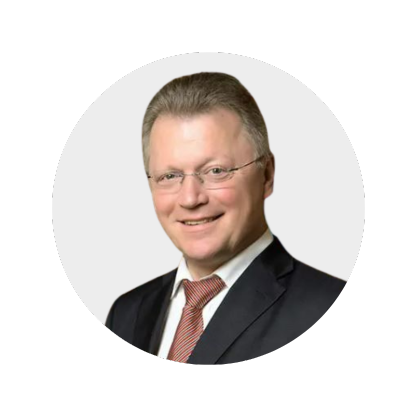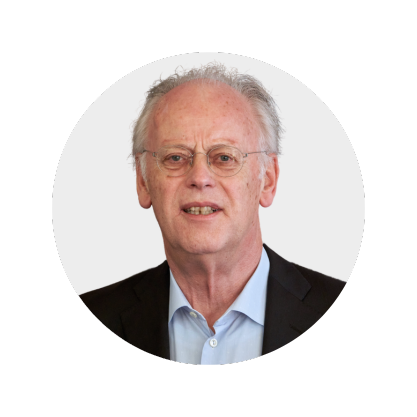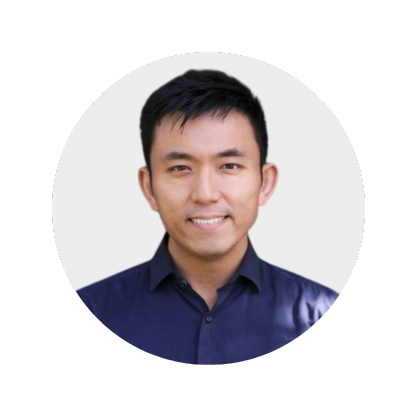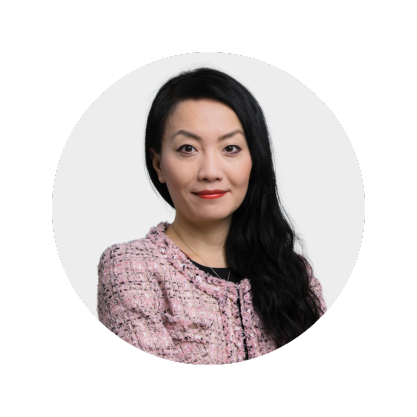One question arises on the day after the European elections: What does the outcome mean for the EU’s future China policy? The most explosive question is obvious: Will the European Union actually impose punitive tariffs on electric cars from China? Valdis Dombrovskis, EU Trade Commissioner, has clear words on the subject in an interview conducted by János Allenbach-Ammann: “If we don’t react, things will only get worse.”
The Vice-President of the EU Commission also warns of the growing market share of Chinese EV manufacturers. These statements have considerable implications for the relationship between the EU and China. Beijing has repeatedly indicated that it will react decisively to EU punitive tariffs.
The idea of Germany’s Economy Minister Robert Habeck regarding the German Supply Chain Act also has significant implications – and has provoked extremely harsh criticism. The law is supposed to ensure greater protection of human rights and the environment. However, Habeck wants to suspend it for two years. In his analysis, Marcel Grzanna shows that Habeck’s proposal is being met with a broad front that considers his statements ill-conceived.
For instance, Markus Loening speaks of a disturbing signal to many companies. After all, a lot of time and money has already been invested in risk management processes, the former human rights commissioner of the German government criticizes. The World Uyghur Congress is no less outraged.
And finally, I would like to draw your attention to our list of key China decision-makers. Today, we are looking at the top 10 consultants.


The Latvian Commission Vice-President spoke to Table.Briefings on Monday after the European elections. The Latvian EPP list, which he headed, achieved the highest share of votes in the country. Last Monday evening, Latvian Prime Minister Evika Siliņa nominated the experienced EU Commissioner for another mandate. Dombrovskis is currently in Berlin for the Ukraine Reconstruction Conference.
Mr. Dombrovskis, what is your first reaction after yesterday’s European elections?
The first conclusion is that pro-European, centrist political forces will continue to have a majority in the European Parliament. The EPP will continue to be the largest and most influential force in the EU. This will enable us to tackle the challenges we face in the next political cycle – strengthening European security and the competitiveness of the EU economy.
You will attend the Ukraine Recovery Conference in Berlin today. What are your expectations of this conference?
It’s an important next step in the work on the Ukraine recovery, which helps us to coordinate this work. Certainly, I hope there are going to be announcements from the EU side, which I’m not in a position now to preannounce, but, besides this public support, it’s important to also ensure private investment and private sector participation in Ukraine reconstruction. And that’s why we welcome the recovery forum, where international businesses and investors will be brought together with Ukrainian companies and also with regional representatives and municipalities to discuss private investment into Ukraine.
The G7 is discussing the frozen Russian assets. The US proposes using the profits from these assets as a guarantee to allow a much larger loan to Ukraine instead of using the profits directly for Ukraine, as the EU Council has suggested. What do you think of the proposal?
We are open to discussing this concept of leveraging this financing flow to provide a substantially larger loan to Ukraine. The exact modalities, whether it’s exactly the US proposal or some kind of cooperative approach where the international community is providing this loan based on leveraging those assets, are still under discussion. But conceptually, we are positive about this idea.
What is the problem with the modalities?
One issue, which is important in this regard, are reassurances that those Russian assets remain immobilized as a basis for this whole leveraging operation. There is, on the one hand, the G7 decision, which says that the Russian assets should stay immobilized for as long as Russia has not paid reparations to Ukraine for the damage it has created. And that will help in this regard. But on the other hand, there is an EU sanctions regime, which foresees a regular renewal of this decision. So, one important question is how to have this long-term certainty for this operation.
When will the Commission announce its provisional decision on electric car tariffs?
We are currently working on this and one can expect that it’s coming soon. I cannot tell the exact date, but it’s coming.
How do you determine how high this tariff should be?
Well, it’s a fact-based investigation. So, what determines the level of tariffs is the volume of countervailable subsidies. It also depends on which extent the companies are cooperating with this investigation. But generally speaking, it’s better for companies to cooperate on this because otherwise we are using presumptions which may not be advantageous for the companies that are not cooperating.
How did the collaboration with Chinese manufacturers go?
Well, I would say there has been a varying degree of cooperation from Chinese companies (laughs)
Could you elaborate further?
With some, cooperation was fairly good, with others, less so.
And when you talk about Chinese manufacturers, do you mean Chinese brands or also European brands that manufacture in China?
It will ultimately impact all Chinese exports to the EU, but specifically, we’re primarily looking at some Chinese brands.
Have you also spoken to German car manufacturers?
Obviously, we’re in contact with member states on these topics. In Germany, views vary a bit about this investigation. But, we think it’s important that we are concluding this investigation because, well, the fact is that China is subsidizing its electrical vehicles industry and that it is giving China a competitive advantage. So, obviously, the aim of this investigation is not to impose some kind of protectionist tariffs, completely banning Chinese manufacturers, but it’s to remove unfair advantages that Chinese manufacturers are having through subsidies.
China is already preparing some countermeasures in case the EU imposes these tariffs. How can the Commission respond? Are you already planning ahead?
It remains to be seen. But, it’s worth noting that the US, for example, has recently imposed 100 percent tariffs on Chinese electric vehicles. Turkey has substantially increased its tariffs. So, currently, the EU market is the largest market open to Chinese manufacturers. And we see the market share of Chinese manufacturers growing very rapidly. So, from that point of view, it is also obviously a risk of injury for European industry. And if we do not react, it will only get worse.
By all accounts, Chinese cars seem to be of very high quality. How will the EU need to change its stance on industrial policy so that Europeans might have the superior cars next time?
First of all, I would say that the EU has many very strong car manufacturers, which also have a strong, competitive position. At the same time, it has to be admitted that European car manufacturers were relatively slow in this move towards electromobility. China may now be a step ahead, so there is some catching up to do. So, our intention is not to protect our industry from competition but just to adjust for unfair competition.
The EU economy is lagging behind the US, as many different statistics show. The industry is very concerned. What does the next Commission need to do differently than the current one?
First of all, it must be said that the European economy is proving to be resilient despite very complicated circumstances. But it’s also true that besides those challenges we are facing right now with Russia’s war, there are also long-term structural challenges that we need to address, like relatively low productivity growth in the EU compared with the U.S. or China, population aging, and relatively high energy prices. And so we’ll have to pay a lot of attention to European economic competitiveness. As you know, the European Commission has come forward with an initiative of a reduction of administrative burden by 25 percent. It’s important that this commitment is followed through.
When can we expect a proposal to reduce bureaucracy?
Well, the European Commission has already started to work on those proposals. We have also launched a call for evidence, asking different stakeholders to provide us evidence of some excessive or unnecessary bureaucratic burden so that we can see the exact places where we can reduce the administrative burden. Obviously, it’s important that this is also reflected in our political priorities for the next Commission and that there is sustained pressure from stakeholders, especially from the business community, so that this is actually being delivered.
Can such a proposal be expected before the end of the year?
At this stage, it’s difficult for me to prejudge the decisions of the next European Commission. But that’s why I emphasize that it’s important that it’s reflected in the political priorities of the next Commission and that there is continuity on this initiative from this Commission to the next Commission.
Germany plays a strong role in the EU economy, but things are looking particularly bad here. What should Germany do differently?
Well, as regards the German economy, we also see strong sides, including a resilient labor market. One area where there will be a need of reinforcement is investment because in terms of public investment, Germany could actually do more. And that would support both, the German economy and the broader European economy.
So, if Germany spends more money, it would boost its and the European economies and probably also reduce the pressure on other, more indebted EU countries. How will you try to sell this idea to the Germans?
As you know, we are coordinating all those issues through the European semester. It has consistently been recommended that Germany step up its level of public investment. I think one important element is that we have recently agreed on a new EU economic governance framework, which actually provides more flexibility for member states to determine their fiscal adjustment path and more possibilities to correct this adjustment path if a country is implementing reforms and investments in line with European priorities. So obviously, we also encourage Germany to use these possibilities.

The considerations of German Economy Minister Robert Habeck (Greens) of suspending the German Supply Chain Act (LkSG) have caused controversy. While Habeck’s proposal has received approval from the coalition partner the Free Democratic Party (FDP), business consultants and legal experts consider the idea “disturbing.” Last week, Habeck brought up the possibility of suspending the German Supply Chain Act for two years until its EU counterpart comes into force Europe-wide. The aim is to relieve companies of bureaucracy.
“The minister is creating great uncertainty. This is a disturbing signal to many companies where the risk management processes are already very advanced. This is deeply frustrating for them,” said Markus Loening, former Human Rights Commissioner of the German Federal Government and founder of the consultancy firm Loening Human Rights & Responsible Business. Due to the growing importance of sustainable supply chains, large companies are “under enormous pressure on the financial markets, from customers and also from society to meet expectations. And now they are getting the signal that all this is not so important after all,” Loening told Table.Briefings.
Habeck received outright horror from the World Uyghur Congress (WUC). The organization has been fighting for years against forced labor in the north-western Chinese region of Xinjiang, where Uyghurs are forced into a state system in which they are exploited and under strict control. “The safeguarding of human rights seems to be open to negotiation. Habeck’s consideration undermines years of efforts and progress in the field of human rights and climate justice and shows a dangerous lack of political resolve,” warned Haiyuer Kuerban, Director of the WUC office in Berlin.
He said that suspending the Supply Chain Act may bring economic relief to some companies in the short term, but in the long term, it would damage the reputation and credibility of German politics and business on the international stage.
Accordingly, Kuerban expressed disappointment that Renata Alt (FDP), Chair of the Human Rights Committee in the German Bundestag, supported Habeck’s suggestion. Alt said it would not help anyone if the German economy was already burdened with additional requirements while a Europe-wide regulation had not yet come into force. “Companies in Germany need the same conditions as everywhere else in the EU in order to be competitive,” Alt said in a statement to Table Briefings.
The discussion about safeguarding human rights and the environment through the German Supply Chain Act has been accompanying German companies for years. On January 1, 2023, the Supply Chain Act came into force for large companies with 3,000 or more employees. Since this year, the law also applies to companies with 1,000 or more employees. In total, around 13,000 companies in Germany are currently affected.
Suspending the law raises the question of why these companies have already invested a considerable amount of time and money in developing internal risk management in accordance with the Act. Numerous new positions have even been created for this purpose, particularly in large companies.
A human resources officer and the compliance team at these companies do nothing but ensure continuous legislation compliance. Christoph Schork from the Cologne law firm Heuking believes that a possible suspension thwarts the “understandable wish of the economy for planning security and reliability on the part of the legislator.”
Schork, who has been preparing numerous clients for the introduction of the Supply Chain Act for years, believes that Habeck’s approach falls short for another reason as well. In order to bring the German version into line with the European requirements of the EU Corporate Sustainability Due Diligence Directive (CSDDD), it would be necessary to look at a period of up to five years, not just the next two years, Schork told Table.Briefings.
The reason for this is the European legal framework, which only stipulates that companies with 1,000 employees and a revenue of 450 million euros or more will be subject to the obligation from 2029. Only then will the companies currently subject to the Supply Chain Act also have to comply with the due diligence obligations of the CSDDD. “Habeck’s proposal completely disregards this. In this respect, a two-year suspension would not suffice,” Schork said.
He also does not believe that Habeck’s proposal would significantly reduce the bureaucratic burden on companies. According to the EU Corporate Sustainability Reporting Directive (CSRD) and the EU Deforestation Regulation, and in view of the upcoming EU forced labor ban, companies already must fully uphold human rights in their value chains. Even if the German Supply Chain Act is suspended, companies must examine and comply with the rules of the Supply Chain Act all the same. Suspending the law would not help them at all.
In the European elections, some of China’s biggest critics in the EU Parliament have been re-elected for another term, including French Socialist Raphael Glucksmann and Slovakian Christian Democrat Miriam Lexmann, who has been sanctioned by Beijing since 2021. Trade Commissioner Valdis Dombrovskis also retained his seat. Dombrovskis had expressed interest in a second term as Trade Commissioner.
In Germany, Bernd Lange (SPD) has been re-elected. Lange most recently chaired the EU Parliament’s Trade Committee. Anna Cavazzini (Greens, EU Supply Chain Act), Moritz Koerner (FDP), Engin Eroglu (Free Voters, expert on Uyghur rights), Daniel Caspary (CDU, International Procurement Instrument) and Michael Gahler (CDU, Chairman of the Taiwan Friendship Group) will sit in the new EU Parliament. Viola Cramon-Taubadel (Greens, human rights expert) lost her seat. AfD candidate Maximilian Krah was re-elected. Krah’s employee Jian G. was arrested in Germany for being a member of a Chinese intelligence agency.
Overall, the European Parliament has shifted to the right – however, the incumbent EU Commission President Ursula von der Leyen and her China policy could continue. The center-right European People’s Party (EPP) remains the largest group in the EU Parliament and von der Leyen has a good chance of a second term in office, even without the votes of the radical right-wing Identity and Democracy (ID).
According to the results on Monday afternoon, the EPP gained 186 seats – four more than in 2019 – while the Socialist and Democratic Group (S&D) became the second-strongest force, slipping from 154 in 2019 to 135 seats. The right-wing European Conservatives and Reformists (ECR) won 73 seats, compared to 62 five years ago. ID as a group theoretically even lost ground in the EU Parliament, falling from 72 to 58 seats, although this is also due to the exclusion of the German AfD from the group.
In Hungary, Prime Minister Viktor Orbán’s Fidesz party – which is considered China’s closest ally in the EU – lost support slightly. After two-thirds of the votes had been counted, it had 44 percent of the votes, compared to 52 percent in the previous EU election. It will now be interesting to see how the far-right parties work together. If they were to include the non-attached Fidesz and AfD, they could reach the one-third hurdle in the EU Parliament to block legislation. ari
Five men in Xinjiang have been sentenced to long prison terms. Their “crime”: They all knew the former employee of the US radio station Voice of America (VOA), Kasim Kashgar, who fled his home country to the USA in 2017. As Radio Free Asia reported, Mirkamil Ahmed, Semet Ababekri, Abdukadir Rozi, Mehmut Abdukeyum and Akber Osman have now each been sentenced to at least seven years in prison. Kashgar discovered this in May after the Uyghurs had already been arrested three years ago.
According to the official statement, the men were accused of being members of terrorist and separatist organizations. The men had worked with the journalist at a language school in the eponymous city of Kashgar in western Xinjiang.
Kashgar told the broadcaster that he was accused of recruiting activists for the World Uyghur Congress (WUC), a German-based organization that campaigns for the rights of the predominantly Muslim Uyghurs. The WUC denies the allegations in a statement to Table.Briefings.
“We are well aware that any contact with the people in our homeland poses a serious threat to their lives and well-being, which is why we have never actively made contact,” a spokesperson told Table.Briefings. Accusations of terrorism or “ties to subversive foreign forces” are common excuses used by the Chinese government to imprison Uyghurs and usually punish them with long prison sentences or even death. grz
China’s Premier Li Qiang will visit New Zealand this week. Li will be the first Chinese premier to visit New Zealand since 2017. He is also expected to visit Australia during his upcoming trip. New Zealand Prime Minister Christopher Luxon confirmed the plans on Monday, saying Li’s visit would be a valuable opportunity for exchanges on areas of cooperation between the two countries.
Bilateral trade will be an important topic. China is New Zealand’s largest export market. Among the Western democracies, New Zealand is one of China’s closest partners. Luxon said on Monday that he was confident that trade with China would continue to grow. “New Zealand and China engage where we have shared interests, and we speak frankly and constructively with each other where we have differences. Our relationship is significant, complex and resilient,” Luxon said
There are indeed plenty of disagreements. Relations between China and New Zealand have recently deteriorated significantly – partly due to China’s military and diplomatic expansion policy in the Pacific Ocean. The new center-right government in Wellington has aligned its policy more closely with Australia and the United States. Recently, there has even been speculation about New Zealand joining the AUKUS security pact between the United States, Australia and the United Kingdom. This would be a step that could further worsen relations with Beijing. rad
An overwhelming majority of the Philippine population supports military measures to counter a threat from China in the South China Sea. This is according to a survey conducted by the private opinion research institute Octa Research. The analysts say the result reflects growing public support for President Ferdinand Marcos Jr.’s increasingly assertive stance on the territorial dispute. The survey was conducted in March as part of a series documenting Filipinos’ attitudes towards the South China Sea dispute since 2021.
Overall, 73 percent of the 1,200 respondents were in favor of “further asserting the Philippines’ territorial rights through military action, such as expanded naval patrols and troop presence in the West Philippine Sea.” In the Philippines, the term West Philippine Sea refers to the part of the South China Sea that Manila claims as its maritime territory. This includes the Luzon Sea and the neighboring sea area, the Kalayaan archipelago and Bajo de Masinloc, better known as Scarborough Reef.
Diplomacy is only just behind the military in the survey. 72 percent of respondents said they would be in favor of “diplomacy and other peaceful methods.” This means that interest in a diplomatic solution is only marginally behind military measures. The conflict between China and its neighboring countries in the South China Sea has recently intensified considerably. The Philippines are trying to build up public pressure on China with a campaign. rad


Eberhard Sandschneider – Partner at Berlin Global Advisors
Eberhard Sandschneider has been recognised as a political scientist and East Asia expert for many years. He is one of the most renowned experts in the German-speaking world when it comes to China’s political system, relations with neighboring countries in the Asia-Pacific region and, last but not least, Sino-German relations. Sandschneider has taught as a professor of political science since 1998, was Managing Director of the Otto Suhr Institute until 2001 and Otto Wolff Director of the Research Institute of the renowned German Council on Foreign Relations (DGAP) between 2003 and 2016. Sandschneider is now a partner at the Berlin Global Advisors consultancy.

Oliver Radtke – CEO, Global Neighbors
For ten years, Oliver Radtke was “the China man” at the Robert Bosch Foundation, overseeing such important programs as the German-Chinese media ambassadors for journalists from both countries, teacher and lawyer exchange programs and other Sino-German dialogue forums. Most recently, Radtke, who studied sinology in Heidelberg, was head of the Heinrich Boell Foundation in Beijing before taking up his new management position at Global Neighbors at the beginning of the year. The organization is the brainchild of Jovanka Porsche, who aims to use this project to bridge relations between China and Europe. Radtke’s task is to bring this goal to life.

Bjoern Conrad – Co-founder of Sinolytics
The more complicated Europe’s relationship with China becomes, the more in demand the consulting and analysis company Sinolytics, run by Bjoern Conrad. Founded in 2017, Conrad and his team in Berlin and Beijing are particularly in demand from German companies operating on the Chinese market. Conrad studied at the University of Trier and Harvard University. He was Deputy Director of Merics in Berlin for four years and has also worked for the Boston Consulting Group in Munich and the World Bank in Washington.

Frederik Gollob – Managing Director and Co-Founder, hil-top advisory
Although the Hong Kong-based consultancy hil-top advisory has only been around since 2019, founder and Managing Partner Frederik Gollob is no newcomer. He has worked for Mercedes-Benz for almost two decades, including many years in Beijing and Hong Kong. He even managed the local branch in Hong Kong and was also Head of the European Chamber of Commerce there between 2020 and 2022.

Rudolf Scharping – Founder and CEO, RSBK Strategie Beratung Kommunikation AG
Germany’s former Minister of Defense (1998 to 2002) has been active in China consulting for many years. With the company he founded, RSBK Strategie Beratung Kommunikation AG, he has been advising and supporting German and Chinese companies since 2006 and has, among other things, set up a Sino-German business conference. According to his statements, he has made almost 200 visits to China over the past 18 years and maintains close contact with the communist leadership.

Theresa Stewart – Head of the China team in Germany at Storymaker
As Managing Partner at Storymaker, a communications agency based in Tübingen with offices in Shanghai, Munich and Berlin, Theresa Stewart is at the heart of the China business. She has been the third member of the management board since 2022 and also owns shares in the company. Before joining Storymaker, she worked in various international positions, including at the German Centers in Shanghai and Taicang. Her expertise lies in cross-border digital communication and leading Sino-German teams. Stewart has a background in Sinology.

Damian Maib – CEO and founder of Genuine German
Genuine German is a consulting agency specializing in the digital aspects of market entry in China: social media, brand development and contact with young target groups. Damian Maib founded Genuine in Shanghai in 2017 after gaining extensive experience in trading with China during his studies and early career. Among other things, he sold products in Germany that he had sourced at low prices from China. Genuine has supported brands such as Beiersdorf, Adidas and Procter & Gamble.

John Lee – Director at East West Futures Consulting
John Lee is known to the Berlin China scene for his work at the think tank Merics, where he worked from 2019 to 2021. At East West Futures, he focuses primarily on China’s progress in the semiconductor industry and digitalization issues. He has previously worked for the Australian government and holds an Australian law license.

Fang Fang – Partner and Head of the China Desk at bdp China
For over twenty years, Fang Fang has been accompanying German companies on their journey into the Chinese market. She is mainly based in Hamburg but also often visits the Bdp offices in Tianjin and Shanghai. Fang Fang first studied in Harbin and then moved to the Free University of Berlin. Bdp is a management consultancy focused on medium-sized companies.

Yi Sun – Head, Strategy & Transactions, Head of Greater China Business at EY
Born in Shanghai and raised in Singapore, Yi Sun also speaks perfect German, which she learned at school. In Duesseldorf, she heads up the China business of the renowned management consultancy Ernst & Young. She mainly advises on cross-border takeovers and, in particular, Chinese acquisitions in Germany. She is a partner at EY.
Cindy Cao becomes CEO for Greater China at DB Schenker. Cao has worked for the German freight forwarding company for almost 30 years, having joined in 1995 as an air freight import manager. Cao succeeds Vishal Sharma, who became head of APAC in February this year.
Bjoern Giner has been Head of Strategy Greater China at Schaeffler since April. Previously, Giner was Senior Engineer at the listed German supplier to the automotive and mechanical engineering industry based in Herzogenaurach for two years.
Is something changing in your organization? Let us know at heads@table.media!

How do you fake a waterfall? With a large pipe and a powerful pump. A hiker has posted a video from the top of the world-famous 314-meter-high Yuntai waterfall that casts doubt on the authenticity of the spectacular scenery: The water shoots out of a pipe that has been cemented into the mountain.
The operator of the national park did not deny the technical side of the natural wonder. “It would be a shame if all the people came and then couldn’t take a photo,” was the explanation. But it doesn’t matter where the water comes from. In any case, the operator claimed it is just a “small optimization” of the water flow, which sometimes leaves a lot to be desired in dry weather.
One question arises on the day after the European elections: What does the outcome mean for the EU’s future China policy? The most explosive question is obvious: Will the European Union actually impose punitive tariffs on electric cars from China? Valdis Dombrovskis, EU Trade Commissioner, has clear words on the subject in an interview conducted by János Allenbach-Ammann: “If we don’t react, things will only get worse.”
The Vice-President of the EU Commission also warns of the growing market share of Chinese EV manufacturers. These statements have considerable implications for the relationship between the EU and China. Beijing has repeatedly indicated that it will react decisively to EU punitive tariffs.
The idea of Germany’s Economy Minister Robert Habeck regarding the German Supply Chain Act also has significant implications – and has provoked extremely harsh criticism. The law is supposed to ensure greater protection of human rights and the environment. However, Habeck wants to suspend it for two years. In his analysis, Marcel Grzanna shows that Habeck’s proposal is being met with a broad front that considers his statements ill-conceived.
For instance, Markus Loening speaks of a disturbing signal to many companies. After all, a lot of time and money has already been invested in risk management processes, the former human rights commissioner of the German government criticizes. The World Uyghur Congress is no less outraged.
And finally, I would like to draw your attention to our list of key China decision-makers. Today, we are looking at the top 10 consultants.


The Latvian Commission Vice-President spoke to Table.Briefings on Monday after the European elections. The Latvian EPP list, which he headed, achieved the highest share of votes in the country. Last Monday evening, Latvian Prime Minister Evika Siliņa nominated the experienced EU Commissioner for another mandate. Dombrovskis is currently in Berlin for the Ukraine Reconstruction Conference.
Mr. Dombrovskis, what is your first reaction after yesterday’s European elections?
The first conclusion is that pro-European, centrist political forces will continue to have a majority in the European Parliament. The EPP will continue to be the largest and most influential force in the EU. This will enable us to tackle the challenges we face in the next political cycle – strengthening European security and the competitiveness of the EU economy.
You will attend the Ukraine Recovery Conference in Berlin today. What are your expectations of this conference?
It’s an important next step in the work on the Ukraine recovery, which helps us to coordinate this work. Certainly, I hope there are going to be announcements from the EU side, which I’m not in a position now to preannounce, but, besides this public support, it’s important to also ensure private investment and private sector participation in Ukraine reconstruction. And that’s why we welcome the recovery forum, where international businesses and investors will be brought together with Ukrainian companies and also with regional representatives and municipalities to discuss private investment into Ukraine.
The G7 is discussing the frozen Russian assets. The US proposes using the profits from these assets as a guarantee to allow a much larger loan to Ukraine instead of using the profits directly for Ukraine, as the EU Council has suggested. What do you think of the proposal?
We are open to discussing this concept of leveraging this financing flow to provide a substantially larger loan to Ukraine. The exact modalities, whether it’s exactly the US proposal or some kind of cooperative approach where the international community is providing this loan based on leveraging those assets, are still under discussion. But conceptually, we are positive about this idea.
What is the problem with the modalities?
One issue, which is important in this regard, are reassurances that those Russian assets remain immobilized as a basis for this whole leveraging operation. There is, on the one hand, the G7 decision, which says that the Russian assets should stay immobilized for as long as Russia has not paid reparations to Ukraine for the damage it has created. And that will help in this regard. But on the other hand, there is an EU sanctions regime, which foresees a regular renewal of this decision. So, one important question is how to have this long-term certainty for this operation.
When will the Commission announce its provisional decision on electric car tariffs?
We are currently working on this and one can expect that it’s coming soon. I cannot tell the exact date, but it’s coming.
How do you determine how high this tariff should be?
Well, it’s a fact-based investigation. So, what determines the level of tariffs is the volume of countervailable subsidies. It also depends on which extent the companies are cooperating with this investigation. But generally speaking, it’s better for companies to cooperate on this because otherwise we are using presumptions which may not be advantageous for the companies that are not cooperating.
How did the collaboration with Chinese manufacturers go?
Well, I would say there has been a varying degree of cooperation from Chinese companies (laughs)
Could you elaborate further?
With some, cooperation was fairly good, with others, less so.
And when you talk about Chinese manufacturers, do you mean Chinese brands or also European brands that manufacture in China?
It will ultimately impact all Chinese exports to the EU, but specifically, we’re primarily looking at some Chinese brands.
Have you also spoken to German car manufacturers?
Obviously, we’re in contact with member states on these topics. In Germany, views vary a bit about this investigation. But, we think it’s important that we are concluding this investigation because, well, the fact is that China is subsidizing its electrical vehicles industry and that it is giving China a competitive advantage. So, obviously, the aim of this investigation is not to impose some kind of protectionist tariffs, completely banning Chinese manufacturers, but it’s to remove unfair advantages that Chinese manufacturers are having through subsidies.
China is already preparing some countermeasures in case the EU imposes these tariffs. How can the Commission respond? Are you already planning ahead?
It remains to be seen. But, it’s worth noting that the US, for example, has recently imposed 100 percent tariffs on Chinese electric vehicles. Turkey has substantially increased its tariffs. So, currently, the EU market is the largest market open to Chinese manufacturers. And we see the market share of Chinese manufacturers growing very rapidly. So, from that point of view, it is also obviously a risk of injury for European industry. And if we do not react, it will only get worse.
By all accounts, Chinese cars seem to be of very high quality. How will the EU need to change its stance on industrial policy so that Europeans might have the superior cars next time?
First of all, I would say that the EU has many very strong car manufacturers, which also have a strong, competitive position. At the same time, it has to be admitted that European car manufacturers were relatively slow in this move towards electromobility. China may now be a step ahead, so there is some catching up to do. So, our intention is not to protect our industry from competition but just to adjust for unfair competition.
The EU economy is lagging behind the US, as many different statistics show. The industry is very concerned. What does the next Commission need to do differently than the current one?
First of all, it must be said that the European economy is proving to be resilient despite very complicated circumstances. But it’s also true that besides those challenges we are facing right now with Russia’s war, there are also long-term structural challenges that we need to address, like relatively low productivity growth in the EU compared with the U.S. or China, population aging, and relatively high energy prices. And so we’ll have to pay a lot of attention to European economic competitiveness. As you know, the European Commission has come forward with an initiative of a reduction of administrative burden by 25 percent. It’s important that this commitment is followed through.
When can we expect a proposal to reduce bureaucracy?
Well, the European Commission has already started to work on those proposals. We have also launched a call for evidence, asking different stakeholders to provide us evidence of some excessive or unnecessary bureaucratic burden so that we can see the exact places where we can reduce the administrative burden. Obviously, it’s important that this is also reflected in our political priorities for the next Commission and that there is sustained pressure from stakeholders, especially from the business community, so that this is actually being delivered.
Can such a proposal be expected before the end of the year?
At this stage, it’s difficult for me to prejudge the decisions of the next European Commission. But that’s why I emphasize that it’s important that it’s reflected in the political priorities of the next Commission and that there is continuity on this initiative from this Commission to the next Commission.
Germany plays a strong role in the EU economy, but things are looking particularly bad here. What should Germany do differently?
Well, as regards the German economy, we also see strong sides, including a resilient labor market. One area where there will be a need of reinforcement is investment because in terms of public investment, Germany could actually do more. And that would support both, the German economy and the broader European economy.
So, if Germany spends more money, it would boost its and the European economies and probably also reduce the pressure on other, more indebted EU countries. How will you try to sell this idea to the Germans?
As you know, we are coordinating all those issues through the European semester. It has consistently been recommended that Germany step up its level of public investment. I think one important element is that we have recently agreed on a new EU economic governance framework, which actually provides more flexibility for member states to determine their fiscal adjustment path and more possibilities to correct this adjustment path if a country is implementing reforms and investments in line with European priorities. So obviously, we also encourage Germany to use these possibilities.

The considerations of German Economy Minister Robert Habeck (Greens) of suspending the German Supply Chain Act (LkSG) have caused controversy. While Habeck’s proposal has received approval from the coalition partner the Free Democratic Party (FDP), business consultants and legal experts consider the idea “disturbing.” Last week, Habeck brought up the possibility of suspending the German Supply Chain Act for two years until its EU counterpart comes into force Europe-wide. The aim is to relieve companies of bureaucracy.
“The minister is creating great uncertainty. This is a disturbing signal to many companies where the risk management processes are already very advanced. This is deeply frustrating for them,” said Markus Loening, former Human Rights Commissioner of the German Federal Government and founder of the consultancy firm Loening Human Rights & Responsible Business. Due to the growing importance of sustainable supply chains, large companies are “under enormous pressure on the financial markets, from customers and also from society to meet expectations. And now they are getting the signal that all this is not so important after all,” Loening told Table.Briefings.
Habeck received outright horror from the World Uyghur Congress (WUC). The organization has been fighting for years against forced labor in the north-western Chinese region of Xinjiang, where Uyghurs are forced into a state system in which they are exploited and under strict control. “The safeguarding of human rights seems to be open to negotiation. Habeck’s consideration undermines years of efforts and progress in the field of human rights and climate justice and shows a dangerous lack of political resolve,” warned Haiyuer Kuerban, Director of the WUC office in Berlin.
He said that suspending the Supply Chain Act may bring economic relief to some companies in the short term, but in the long term, it would damage the reputation and credibility of German politics and business on the international stage.
Accordingly, Kuerban expressed disappointment that Renata Alt (FDP), Chair of the Human Rights Committee in the German Bundestag, supported Habeck’s suggestion. Alt said it would not help anyone if the German economy was already burdened with additional requirements while a Europe-wide regulation had not yet come into force. “Companies in Germany need the same conditions as everywhere else in the EU in order to be competitive,” Alt said in a statement to Table Briefings.
The discussion about safeguarding human rights and the environment through the German Supply Chain Act has been accompanying German companies for years. On January 1, 2023, the Supply Chain Act came into force for large companies with 3,000 or more employees. Since this year, the law also applies to companies with 1,000 or more employees. In total, around 13,000 companies in Germany are currently affected.
Suspending the law raises the question of why these companies have already invested a considerable amount of time and money in developing internal risk management in accordance with the Act. Numerous new positions have even been created for this purpose, particularly in large companies.
A human resources officer and the compliance team at these companies do nothing but ensure continuous legislation compliance. Christoph Schork from the Cologne law firm Heuking believes that a possible suspension thwarts the “understandable wish of the economy for planning security and reliability on the part of the legislator.”
Schork, who has been preparing numerous clients for the introduction of the Supply Chain Act for years, believes that Habeck’s approach falls short for another reason as well. In order to bring the German version into line with the European requirements of the EU Corporate Sustainability Due Diligence Directive (CSDDD), it would be necessary to look at a period of up to five years, not just the next two years, Schork told Table.Briefings.
The reason for this is the European legal framework, which only stipulates that companies with 1,000 employees and a revenue of 450 million euros or more will be subject to the obligation from 2029. Only then will the companies currently subject to the Supply Chain Act also have to comply with the due diligence obligations of the CSDDD. “Habeck’s proposal completely disregards this. In this respect, a two-year suspension would not suffice,” Schork said.
He also does not believe that Habeck’s proposal would significantly reduce the bureaucratic burden on companies. According to the EU Corporate Sustainability Reporting Directive (CSRD) and the EU Deforestation Regulation, and in view of the upcoming EU forced labor ban, companies already must fully uphold human rights in their value chains. Even if the German Supply Chain Act is suspended, companies must examine and comply with the rules of the Supply Chain Act all the same. Suspending the law would not help them at all.
In the European elections, some of China’s biggest critics in the EU Parliament have been re-elected for another term, including French Socialist Raphael Glucksmann and Slovakian Christian Democrat Miriam Lexmann, who has been sanctioned by Beijing since 2021. Trade Commissioner Valdis Dombrovskis also retained his seat. Dombrovskis had expressed interest in a second term as Trade Commissioner.
In Germany, Bernd Lange (SPD) has been re-elected. Lange most recently chaired the EU Parliament’s Trade Committee. Anna Cavazzini (Greens, EU Supply Chain Act), Moritz Koerner (FDP), Engin Eroglu (Free Voters, expert on Uyghur rights), Daniel Caspary (CDU, International Procurement Instrument) and Michael Gahler (CDU, Chairman of the Taiwan Friendship Group) will sit in the new EU Parliament. Viola Cramon-Taubadel (Greens, human rights expert) lost her seat. AfD candidate Maximilian Krah was re-elected. Krah’s employee Jian G. was arrested in Germany for being a member of a Chinese intelligence agency.
Overall, the European Parliament has shifted to the right – however, the incumbent EU Commission President Ursula von der Leyen and her China policy could continue. The center-right European People’s Party (EPP) remains the largest group in the EU Parliament and von der Leyen has a good chance of a second term in office, even without the votes of the radical right-wing Identity and Democracy (ID).
According to the results on Monday afternoon, the EPP gained 186 seats – four more than in 2019 – while the Socialist and Democratic Group (S&D) became the second-strongest force, slipping from 154 in 2019 to 135 seats. The right-wing European Conservatives and Reformists (ECR) won 73 seats, compared to 62 five years ago. ID as a group theoretically even lost ground in the EU Parliament, falling from 72 to 58 seats, although this is also due to the exclusion of the German AfD from the group.
In Hungary, Prime Minister Viktor Orbán’s Fidesz party – which is considered China’s closest ally in the EU – lost support slightly. After two-thirds of the votes had been counted, it had 44 percent of the votes, compared to 52 percent in the previous EU election. It will now be interesting to see how the far-right parties work together. If they were to include the non-attached Fidesz and AfD, they could reach the one-third hurdle in the EU Parliament to block legislation. ari
Five men in Xinjiang have been sentenced to long prison terms. Their “crime”: They all knew the former employee of the US radio station Voice of America (VOA), Kasim Kashgar, who fled his home country to the USA in 2017. As Radio Free Asia reported, Mirkamil Ahmed, Semet Ababekri, Abdukadir Rozi, Mehmut Abdukeyum and Akber Osman have now each been sentenced to at least seven years in prison. Kashgar discovered this in May after the Uyghurs had already been arrested three years ago.
According to the official statement, the men were accused of being members of terrorist and separatist organizations. The men had worked with the journalist at a language school in the eponymous city of Kashgar in western Xinjiang.
Kashgar told the broadcaster that he was accused of recruiting activists for the World Uyghur Congress (WUC), a German-based organization that campaigns for the rights of the predominantly Muslim Uyghurs. The WUC denies the allegations in a statement to Table.Briefings.
“We are well aware that any contact with the people in our homeland poses a serious threat to their lives and well-being, which is why we have never actively made contact,” a spokesperson told Table.Briefings. Accusations of terrorism or “ties to subversive foreign forces” are common excuses used by the Chinese government to imprison Uyghurs and usually punish them with long prison sentences or even death. grz
China’s Premier Li Qiang will visit New Zealand this week. Li will be the first Chinese premier to visit New Zealand since 2017. He is also expected to visit Australia during his upcoming trip. New Zealand Prime Minister Christopher Luxon confirmed the plans on Monday, saying Li’s visit would be a valuable opportunity for exchanges on areas of cooperation between the two countries.
Bilateral trade will be an important topic. China is New Zealand’s largest export market. Among the Western democracies, New Zealand is one of China’s closest partners. Luxon said on Monday that he was confident that trade with China would continue to grow. “New Zealand and China engage where we have shared interests, and we speak frankly and constructively with each other where we have differences. Our relationship is significant, complex and resilient,” Luxon said
There are indeed plenty of disagreements. Relations between China and New Zealand have recently deteriorated significantly – partly due to China’s military and diplomatic expansion policy in the Pacific Ocean. The new center-right government in Wellington has aligned its policy more closely with Australia and the United States. Recently, there has even been speculation about New Zealand joining the AUKUS security pact between the United States, Australia and the United Kingdom. This would be a step that could further worsen relations with Beijing. rad
An overwhelming majority of the Philippine population supports military measures to counter a threat from China in the South China Sea. This is according to a survey conducted by the private opinion research institute Octa Research. The analysts say the result reflects growing public support for President Ferdinand Marcos Jr.’s increasingly assertive stance on the territorial dispute. The survey was conducted in March as part of a series documenting Filipinos’ attitudes towards the South China Sea dispute since 2021.
Overall, 73 percent of the 1,200 respondents were in favor of “further asserting the Philippines’ territorial rights through military action, such as expanded naval patrols and troop presence in the West Philippine Sea.” In the Philippines, the term West Philippine Sea refers to the part of the South China Sea that Manila claims as its maritime territory. This includes the Luzon Sea and the neighboring sea area, the Kalayaan archipelago and Bajo de Masinloc, better known as Scarborough Reef.
Diplomacy is only just behind the military in the survey. 72 percent of respondents said they would be in favor of “diplomacy and other peaceful methods.” This means that interest in a diplomatic solution is only marginally behind military measures. The conflict between China and its neighboring countries in the South China Sea has recently intensified considerably. The Philippines are trying to build up public pressure on China with a campaign. rad


Eberhard Sandschneider – Partner at Berlin Global Advisors
Eberhard Sandschneider has been recognised as a political scientist and East Asia expert for many years. He is one of the most renowned experts in the German-speaking world when it comes to China’s political system, relations with neighboring countries in the Asia-Pacific region and, last but not least, Sino-German relations. Sandschneider has taught as a professor of political science since 1998, was Managing Director of the Otto Suhr Institute until 2001 and Otto Wolff Director of the Research Institute of the renowned German Council on Foreign Relations (DGAP) between 2003 and 2016. Sandschneider is now a partner at the Berlin Global Advisors consultancy.

Oliver Radtke – CEO, Global Neighbors
For ten years, Oliver Radtke was “the China man” at the Robert Bosch Foundation, overseeing such important programs as the German-Chinese media ambassadors for journalists from both countries, teacher and lawyer exchange programs and other Sino-German dialogue forums. Most recently, Radtke, who studied sinology in Heidelberg, was head of the Heinrich Boell Foundation in Beijing before taking up his new management position at Global Neighbors at the beginning of the year. The organization is the brainchild of Jovanka Porsche, who aims to use this project to bridge relations between China and Europe. Radtke’s task is to bring this goal to life.

Bjoern Conrad – Co-founder of Sinolytics
The more complicated Europe’s relationship with China becomes, the more in demand the consulting and analysis company Sinolytics, run by Bjoern Conrad. Founded in 2017, Conrad and his team in Berlin and Beijing are particularly in demand from German companies operating on the Chinese market. Conrad studied at the University of Trier and Harvard University. He was Deputy Director of Merics in Berlin for four years and has also worked for the Boston Consulting Group in Munich and the World Bank in Washington.

Frederik Gollob – Managing Director and Co-Founder, hil-top advisory
Although the Hong Kong-based consultancy hil-top advisory has only been around since 2019, founder and Managing Partner Frederik Gollob is no newcomer. He has worked for Mercedes-Benz for almost two decades, including many years in Beijing and Hong Kong. He even managed the local branch in Hong Kong and was also Head of the European Chamber of Commerce there between 2020 and 2022.

Rudolf Scharping – Founder and CEO, RSBK Strategie Beratung Kommunikation AG
Germany’s former Minister of Defense (1998 to 2002) has been active in China consulting for many years. With the company he founded, RSBK Strategie Beratung Kommunikation AG, he has been advising and supporting German and Chinese companies since 2006 and has, among other things, set up a Sino-German business conference. According to his statements, he has made almost 200 visits to China over the past 18 years and maintains close contact with the communist leadership.

Theresa Stewart – Head of the China team in Germany at Storymaker
As Managing Partner at Storymaker, a communications agency based in Tübingen with offices in Shanghai, Munich and Berlin, Theresa Stewart is at the heart of the China business. She has been the third member of the management board since 2022 and also owns shares in the company. Before joining Storymaker, she worked in various international positions, including at the German Centers in Shanghai and Taicang. Her expertise lies in cross-border digital communication and leading Sino-German teams. Stewart has a background in Sinology.

Damian Maib – CEO and founder of Genuine German
Genuine German is a consulting agency specializing in the digital aspects of market entry in China: social media, brand development and contact with young target groups. Damian Maib founded Genuine in Shanghai in 2017 after gaining extensive experience in trading with China during his studies and early career. Among other things, he sold products in Germany that he had sourced at low prices from China. Genuine has supported brands such as Beiersdorf, Adidas and Procter & Gamble.

John Lee – Director at East West Futures Consulting
John Lee is known to the Berlin China scene for his work at the think tank Merics, where he worked from 2019 to 2021. At East West Futures, he focuses primarily on China’s progress in the semiconductor industry and digitalization issues. He has previously worked for the Australian government and holds an Australian law license.

Fang Fang – Partner and Head of the China Desk at bdp China
For over twenty years, Fang Fang has been accompanying German companies on their journey into the Chinese market. She is mainly based in Hamburg but also often visits the Bdp offices in Tianjin and Shanghai. Fang Fang first studied in Harbin and then moved to the Free University of Berlin. Bdp is a management consultancy focused on medium-sized companies.

Yi Sun – Head, Strategy & Transactions, Head of Greater China Business at EY
Born in Shanghai and raised in Singapore, Yi Sun also speaks perfect German, which she learned at school. In Duesseldorf, she heads up the China business of the renowned management consultancy Ernst & Young. She mainly advises on cross-border takeovers and, in particular, Chinese acquisitions in Germany. She is a partner at EY.
Cindy Cao becomes CEO for Greater China at DB Schenker. Cao has worked for the German freight forwarding company for almost 30 years, having joined in 1995 as an air freight import manager. Cao succeeds Vishal Sharma, who became head of APAC in February this year.
Bjoern Giner has been Head of Strategy Greater China at Schaeffler since April. Previously, Giner was Senior Engineer at the listed German supplier to the automotive and mechanical engineering industry based in Herzogenaurach for two years.
Is something changing in your organization? Let us know at heads@table.media!

How do you fake a waterfall? With a large pipe and a powerful pump. A hiker has posted a video from the top of the world-famous 314-meter-high Yuntai waterfall that casts doubt on the authenticity of the spectacular scenery: The water shoots out of a pipe that has been cemented into the mountain.
The operator of the national park did not deny the technical side of the natural wonder. “It would be a shame if all the people came and then couldn’t take a photo,” was the explanation. But it doesn’t matter where the water comes from. In any case, the operator claimed it is just a “small optimization” of the water flow, which sometimes leaves a lot to be desired in dry weather.